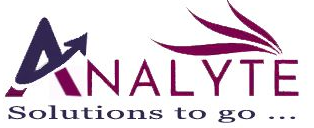When starting a business, understanding the tax implications is crucial. The choice of business structure significantly impacts your tax obligations. Here’s a breakdown of the initial year tax considerations for common business structures:
Single Member LLC
- Default Taxation: A single-member LLC is taxed as a sole proprietorship by default. This means your business income and expenses flow through to your personal tax return.
- Tax Election: You can elect to be taxed as a corporation (S or C) to separate your personal and business liabilities.
- Initial Year Taxes: If you choose the sole proprietorship default, you’ll report business income or loss on Schedule C of your personal tax return. If you elect corporate taxation, you’ll file a corporate tax return.
Partnerships
- Pass-Through Taxation: Partnerships are pass-through entities. This means the partnership’s income, losses, deductions, and credits pass through to the partners’ individual tax returns.
- K-1 Forms: Partners receive K-1 forms detailing their share of the partnership’s income, deductions, and credits.
- Initial Year Taxes: Partners report their share of partnership income or loss on their individual tax returns. The partnership itself doesn’t pay corporate income tax.
S Corporations
- Pass-Through Taxation: S corporations are also pass-through entities. However, they have certain advantages over partnerships, such as limited liability and the ability to have more than one owner.
- Shareholders’ Taxes: Shareholders report their share of S corporation income or loss on their individual tax returns.
- Initial Year Taxes: S corporations file a corporate tax return, but they generally don’t pay corporate income tax. The income or loss flows through to the shareholders.
C Corporations
- Corporate Taxation: C corporations are separate legal entities that pay corporate income tax on their profits.
- Double Taxation: C corporations face double taxation. First, the corporation pays corporate income tax. Then, when the corporation distributes profits to shareholders as dividends, the shareholders pay personal income tax on those dividends.
- Initial Year Taxes: C corporations file a corporate tax return and pay corporate income tax on their taxable income.
Key Considerations for the Initial Year
- Keep Impeccable Records: Maintain detailed records of all income, expenses, and potential deductions throughout the year.
- Understand Deductions and Credits: Familiarize yourself with the deductions and credits available for your business structure to reduce taxable income
- Estimated Taxes: If you expect your business income to exceed certain thresholds, you may need to make estimated tax payments throughout the year.
- Professional Advice: Consulting with a tax professional can help you understand your specific tax obligations and optimize your tax strategy.
Note: Tax laws can be complex and subject to change. It’s essential to consult with a tax advisor or accountant to ensure you’re complying with all applicable tax regulations.
Remember, timely and accurate tax filing is not only a legal requirement but also an opportunity to review financial health and plan for the future.
